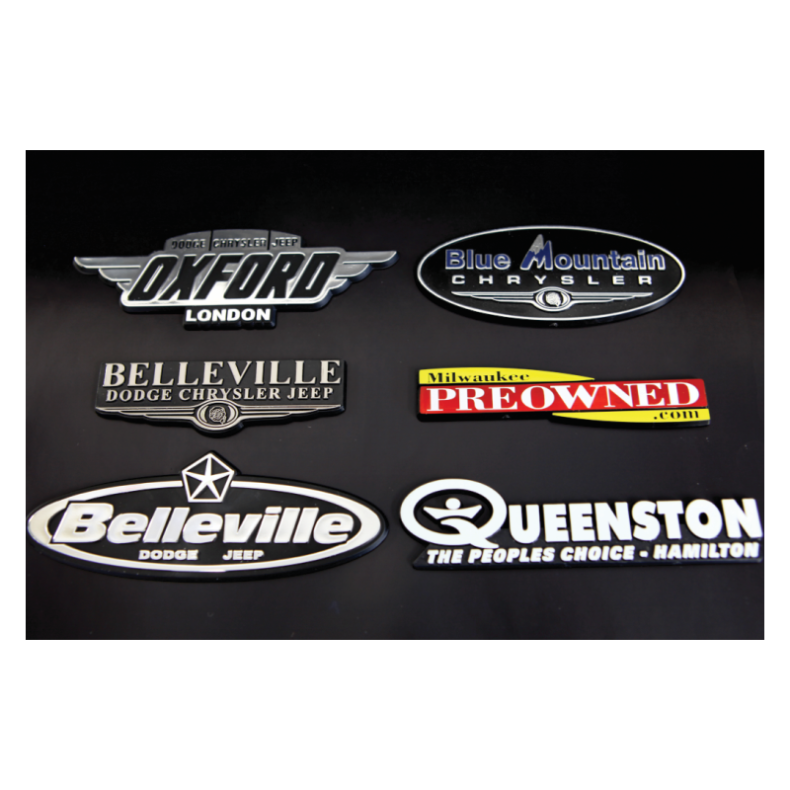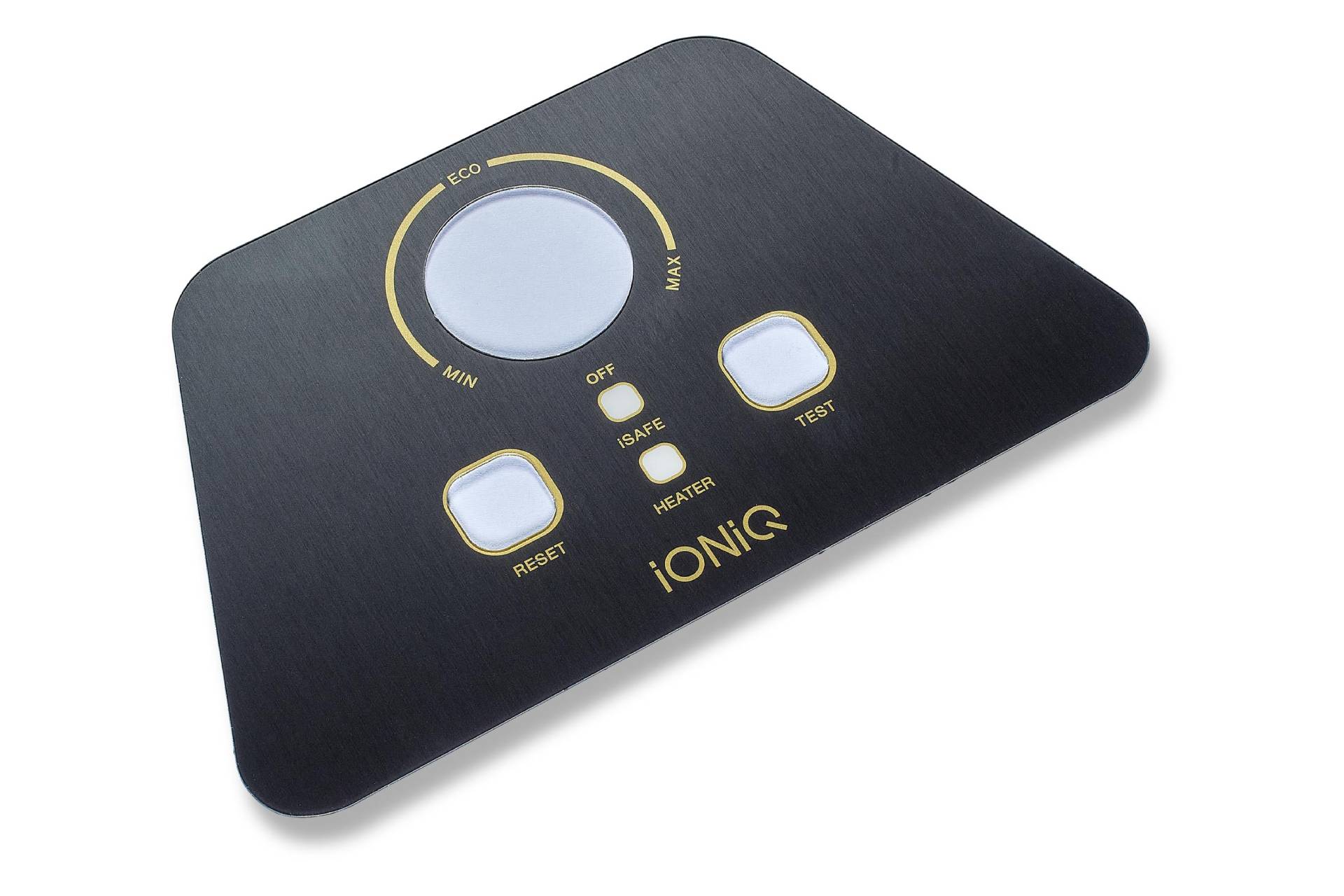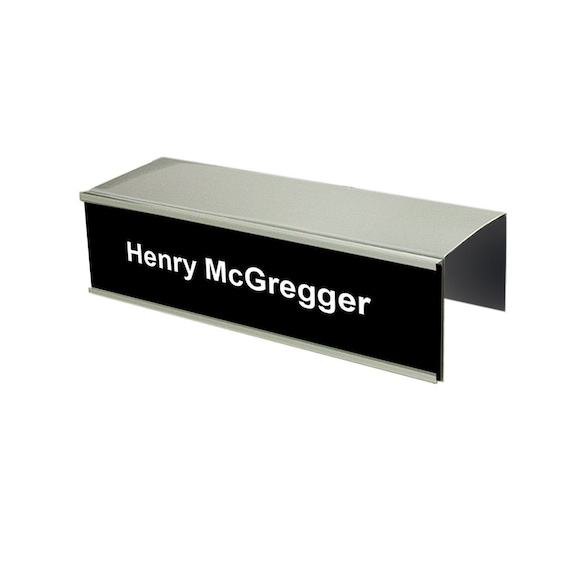Can Plastic Nameplates Be Integrated With QR Codes or Smart Tags?
Can Plastic Nameplates Be Integrated With QR Codes or Smart Tags?
Blog Article
Just How Plastic Nameplates Are Produced: A Comprehensive Overview to Their Manufacturing Refine
The production of plastic nameplates entails several precise actions, beginning with the choice of suitable products to the last complements. Each stage is important, making sure the item fulfills certain needs for resilience and appearances. Different manufacturing methods play a substantial duty in crafting these nameplates. Comprehending these processes can clarify the intricacies behind what may appear like a straightforward item. What variables add to the quality and customization of these nameplates?
Recognizing Plastic Materials Utilized for Nameplates

The Style Refine: From Idea to Model
The style process for plastic nameplates starts with a clear principle that guides the total production. Developers work together with customers to specify the purpose, style, and certain requirements of the nameplate. This initial phase consists of brainstorming sessions, mapping out ideas, and selecting shades and font styles that line up with branding goals.Once the concept is established, designers utilize computer-aided layout (CAD) software program to produce thorough digital representations. These models permit for visualization and adjustments before moving on. Comments from stakeholders is essential during this phase, as it assists refine the style to satisfy expectations.After settling the electronic prototype, a physical design might be generated, typically with methods like 3D printing. This concrete depiction allows further examination of appearances and functionality. Generally, the design process is a necessary action that lays the structure for the reliable manufacturing of premium plastic nameplates.
Cutting and Forming the Plastic
In the cutting and shaping phase of plastic nameplate manufacturing, the selection of materials plays a necessary duty in establishing the last item's high quality and longevity (Plastic Nameplates). Various precision cutting strategies, such as laser cutting and CNC machining, guarantee that the plastic is shaped with accuracy and consistency. This mix of mindful product option and progressed cutting approaches is crucial for creating top quality nameplates

Product Selection Process
Choosing the appropriate material is important for generating premium plastic nameplates. Numerous sorts of plastics are available, each offering unique advantages and qualities. Typical selections consist of acrylic, polycarbonate, and PVC. Acrylic is favored for its quality and UV resistance, making it optimal for outdoor applications. Polycarbonate, understood for its resilience and influence resistance, is appropriate for environments that need enhanced security. PVC is commonly selected for its cost-effectiveness and convenience in style. The option process likewise takes into consideration elements such as density, shade, and surface coating, which can greatly affect the last look and functionality of the nameplate. Inevitably, the selected material should line up with the planned use and aesthetic objectives of the plastic nameplate.
Precision Cutting Strategies
While picking the suitable product prepares, precision reducing techniques play a crucial role in forming the plastic nameplates into their last kinds. Numerous approaches, consisting of laser cutting, CNC milling, and die cutting, are used to achieve accuracy and consistency. Laser cutting makes use of focused light to create complex layouts and tidy sides, suitable for intricate patterns. CNC milling provides adaptability by eliminating excess product with precision, fitting different thicknesses and shapes. Pass away cutting, on the other hand, permits mass manufacturing of consistent items, enhancing effectiveness. Each method is selected based upon the layout requirements and the desired coating, ensuring that the end product satisfies high quality requirements and customer expectations while maintaining toughness and aesthetic charm.
Printing Strategies for Modification
Just how can producers attain specific and dynamic designs on plastic nameplates? The response exists in various printing strategies tailored for customization. Digital printing has actually acquired appeal as a result of its capability to generate high-resolution pictures and complex layouts directly onto plastic surface areas. This technique permits for quick turn-around times and minimal configuration costs, making it perfect for brief runs and customized orders.Screen printing remains another commonly made use of method, specifically for larger amounts. It includes creating a pattern and applying layers of ink, leading to rich colors and sturdiness. UV printing, which utilizes ultraviolet light to cure the ink, is likewise reliable, providing superb attachment and resistance to fading.Additionally, pad printing offers versatility for irregularly designed nameplates, enabling comprehensive layouts on tough surfaces. These printing techniques enable makers to fulfill varied customer requires while making certain top quality and longevity in their plastic nameplate items.
Surface Therapies and Finishing Options

Quality Assurance Procedures in Production
Guaranteeing the highest possible criteria of quality assurance during the manufacturing of plastic nameplates is vital for preserving item stability and customer contentment. Makers carry out extensive inspection methods at numerous stages of the production process. At first, resources go through comprehensive testing to validate they satisfy specifications for sturdiness and shade consistency. During the molding phase, automated systems keep track of parameters such as temperature level and stress to stop defects.In addition, visual assessments are conducted to identify any surface area flaws or misalignments. Once the nameplates are generated, they undergo functional tests, consisting of attachment examinations for published aspects and cardiovascular test for sturdiness. Quality control teams often utilize statistical tasting approaches to evaluate sets, seeing to it that any deviations from criteria their website are without delay resolved. This comprehensive strategy not only boosts product quality yet additionally fosters count on with clients, attesting the manufacturer's dedication to quality in every nameplate generated.
Packaging and Circulation of Finished Nameplates
The product packaging and distribution of completed plastic nameplates are essential action in ensuring they get to consumers in optimal condition. Different packaging materials are chosen to secure the nameplates during transportation, while shipping techniques are thoroughly picked based upon efficiency and cost-effectiveness. In addition, reliable storage solutions are carried out to maintain quality up until the nameplates are provided.
Product Packaging Products Utilized
Picking proper packaging products is necessary to guarantee their protection throughout transportation when distributing completed plastic nameplates. Typically used materials include bubble cover, foam cushioning, and cardboard boxes, all developed to cushion the nameplates versus impacts and shocks. Bubble cover gives an adaptable barrier, while foam cushioning guarantees that nameplates stay securely in position, reducing the threat of scrapes or breakage. Furthermore, tough cardboard boxes are used to include the nameplates, providing structural assistance and protection from outside components. Labels may be used to suggest handling guidelines or fragile contents, additionally enhancing security during transportation. Overall, utilizing high-quality product packaging materials substantially contributes to the integrity and discussion of the completed plastic nameplates upon arrival at their destination.
Delivering Approaches Employed
Efficient distribution of ended up plastic nameplates counts on different delivery approaches that ensure secure and prompt shipment. Firms typically make use of copyright services, products delivery, and postal services, depending on the size, weight, and destination of the plans. For neighborhood shipments, messenger services supply rapid transportation, making certain nameplates get to clients promptly. For larger orders, products delivery is preferred, making use of vehicles or shipping containers to transfer mass quantities successfully. Post offices work as an affordable option for smaller sized deliveries, particularly for residential distributions. All delivery methods focus on protective packaging to avoid damage throughout transportation. Tracking systems are also made use of to check deliveries, giving clients with real-time updates and peace of mind concerning the condition of their orders.
Storage Solutions Implemented

Regularly Asked Inquiries
What Kinds Of Companies Typically Make Use Of Plastic Nameplates?
Plastic nameplates are frequently utilized by numerous companies, consisting of offices, colleges, hospitals, and factories. These nameplates offer essential features such as recognition, info screen, and branding, adding to the original source organizational effectiveness and expert appearance throughout diverse environments.
Just how Long Does the Entire Production Process Take?
The manufacturing process period differs based on intricacy and quantity, generally ranging from a few days to several weeks. Variables affecting this timeline consist of design authorization, product availability, and production methods used by the company.
Can Plastic Nameplates Be Recycled After Usage?
Plastic nameplates can be reused, given they are made from recyclable products. Nevertheless, the schedule of recycling programs and regional guidelines may impact their recyclability. Correct disposal techniques are vital to guarantee efficient recycling.
What Are the Ecological Influences of Plastic Nameplate Production?
The environmental influences of plastic nameplate manufacturing include carbon discharges, resource deficiency, and air pollution from making procedures. Plastic Nameplates. In addition, incorrect disposal contributes to plastic waste, negatively affecting communities and wildlife, highlighting the requirement for lasting practices
Exist Any Kind Of Safety And Security Interest In Plastic Nameplates?
Safety issues relating to plastic nameplates mainly entail potential chemical exposure throughout manufacturing and the risk of products degrading gradually, which may lead to hazardous compounds being released, affecting both human wellness and the atmosphere. While various products can be made use of for nameplates, plastic remains a prominent option due to its versatility and durability. In the cutting and forming stage of plastic nameplate production, the selection of products plays a crucial duty in establishing the last product's top quality and right here sturdiness. Selecting the best material is important for producing high-quality plastic nameplates. While selecting the appropriate product lays the groundwork, accuracy reducing strategies play a vital duty in forming the plastic nameplates right into their last forms. When dispersing finished plastic nameplates, picking ideal packaging materials is crucial to ensure their defense throughout transportation.
Report this page